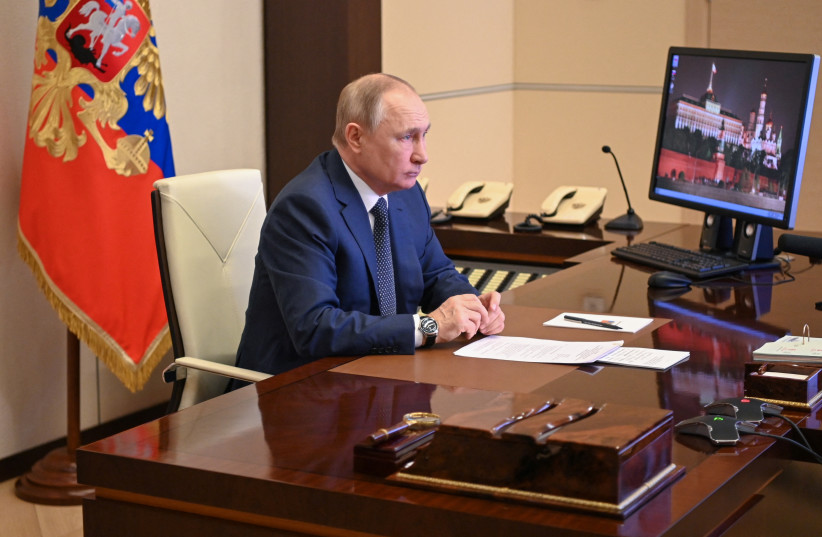Prime Minister Naftali Bennett made a bold and unexpected move on Saturday when he traveled to Moscow to meet with Russian President Vladimir Putin before heading to Berlin for talks with German Chancellor Olaf Scholz, thus placing himself in the role of mediator in an effort to stop Putin’s war on Ukraine.
Bennett also had several conversations with Ukrainian President Volodymyr Zelensky. Last week, Zelensky reportedly asked the Israeli prime minister to reach out to Putin but few expected this mediation to take place, let alone for the Orthodox-Jewish premier to travel to the Russian capital on Shabbat to do it.
The mission was an important one. The horrendous footage of bombed Ukrainian cities and the heart-breaking stories of the more than a million people, who turned into refugees overnight, are reminders that the sooner this war is ended the better. And certainly it cannot be allowed to escalate.
Bennett put himself in the spotlight by making this trip. He reportedly had the blessing of the US administration and it is encouraging to see the prime minister making an effort where other leaders fear to tread.
Israel, of course, has close ties with both Russia and Ukraine and Bennett is in a special position to use them. But the situation is complex. There has been some criticism of Bennett getting involved in a war in which Israel is not a partner. So far, Israel has made a great effort to maintain a diplomatic balancing act, supplying humanitarian, but not military, aid to Ukraine and not calling out Putin by name.

In addition, Israel is unique in its desire as the Jewish state to help rescue the Jewish communities in Ukraine, without putting the Jews living in Russia at risk. It is likely that this special humanitarian consideration was also discussed on Saturday.
Russia has a border with Israel from its positions in Syria. It is well known that Israel maintains coordination with Russia regarding operations over the border, aimed at preventing Iranian entrenchment and the transfer of weapons to Hezbollah. These are prime security interests for Israel, which it does not want to endanger by openly siding militarily with Ukraine.
Nonetheless, Israel is clearly a partner with the West which stands behind Ukraine’s right to maintain its independence and sovereignty.
Undoubtedly one of the topics discussed by Bennett and Putin was the return to the 2015 Iran deal which is reportedly close to being finalized in Vienna. Indeed, some Israelis on the Right have criticized Bennett for not focusing on the dangers of the deal with Iran rather than the Russia-Ukraine war.
Iran is proving one of Russia’s biggest backers. One of the risks of Bennett’s self-appointed role as mediator is that it could create a linkage between the Iran deal and the conflict in Ukraine.
Already, according to a Wall Street Journal report, Russia is now demanding that the US and Europe carve out an exception from their Ukraine-related sanctions so that Moscow can trade with Tehran after a new deal. On the other hand, if Bennett succeeds, Israel will be in a stronger position to make demands to amend the emerging deal.
Bennett’s move was bold, but also a gamble. If mediation fails, the image of the Israeli prime minister sitting across the table from Putin while the Russian president still pounds Ukraine could haunt Bennett and the country.
There will always be plenty of people happy to place the blame for the conflict on the Jews and to see Bennett playing the role of Putin’s puppet.
Israel must not forget that even when relations are strained, it is the US, not Russia, that is the country’s main ally. Israel must ensure that it remains firmly in the Western camp when it comes to democratic ideals. Furthermore, it is unwise to trust a dictator like Putin who could easily break promises and agreements reached with Bennett, causing further harm.
It is too early to say whether Bennett’s mediation effort will come to fruition. We certainly hope so, for everyone’s sake.
Bennett and the Israeli government need to remain cautious and make sure they do not turn into another pawn in Putin’s war, but the prime minister should be praised for stepping up and making an effort to end it.
